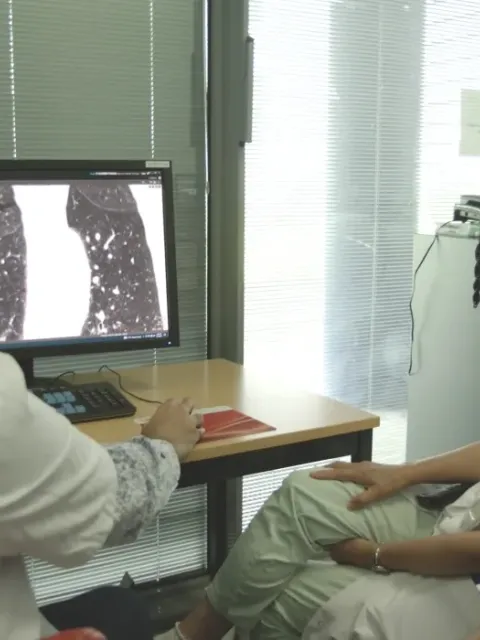The ATOM Coalition advances access to cancer treatment in El Salvador
A workshop organised by the ATOM Coalition in El Salvador mobilised key stakeholders to identify critical barriers impeding access to essential cancer medicines. During the workshop, ATOM Coalition representatives visited a foundation where children with childhood leukaemia are treated with pegaspargase.

ATOM Coalition representatives visited the Ayúdame a Vivir Foundation in El Salvador, where children undergoing cancer treatment are now receiving the medication pegaspargase, to treat acute lymphoblastic leukaemia.
The ATOM Coalition organised a multidisciplinary workshop in collaboration with ASAPRECAN, a UICC member, and the Ministry of Health of El Salvador in March 2025. The workshop convened representatives from key health institutions, cancer care organisations, and policymakers to discuss the most pressing challenges affecting access to essential cancer medicines and the country’s healthcare infrastructure.
Facilitated by representatives of Coalition partners, IDA Foundation, Direct Relief and with participation from The Max Foundation, local stakeholders working in access to medicines identified close to 50 priority areas. These include improving supply chain efficiency, expanding access to innovative treatments, and reinforcing the healthcare workforce – all areas in which the ATOM Coalition and its partners aim to play a critical role.
The country workshops are part of a broader effort to leverage the strengths of ATOM Coalition partners in addressing key bottlenecks that hinder access to life-saving cancer treatments. By conducting a systematic assessment of the pathway that medicines follow to reach patients, including regulatory approval, supply chain management, and appropriate diagnostics and treatment protocols, the ATOM Coalition’s country-level work offers a platform to address the needs voiced by local actors. Ultimately, the aim is to mobilise relevant actors to contribute to the broader global mission of ensuring that all patients – regardless of income level or geographic location – have access to high-quality cancer care.
The plight of thousands of children in low- and middle-income countries who face cancer is exacerbated by the prevalence of counterfeit and substandard medicines, gaps in medical training, and limited access to accurate diagnostics and comprehensive treatment. This contributes to distressingly low survival rates in some settings – as low as 30% in some regions, compared to nearly 80% in many high-income countries (WHO).
Within the context of the workshop, ATOM Coalition representatives had the chance to visit the Ayúdame a Vivir Foundation, where children undergoing cancer treatment are now receiving the medication pegaspargase, to treat acute lymphoblastic leukaemia. Based in San Salvador, the charitable foundation provides comprehensive medical treatment and support to children with cancer in El Salvador.
This important milestone was achieved by Access Cancer Treatment (ACT) for Children in collaboration with the ATOM Coalition through the indirect commercialisation access pathway, supporting the country’s efforts to expand access to high-quality, life-saving cancer care. The ATOM Coalition is committed to ensuring sustainable access to quality cancer care for all by fostering collaboration among pharmaceutical companies, healthcare professionals, and other key stakeholders – each playing a crucial role in achieving what no single entity could accomplish alone.
Last update
Friday 04 April 2025
